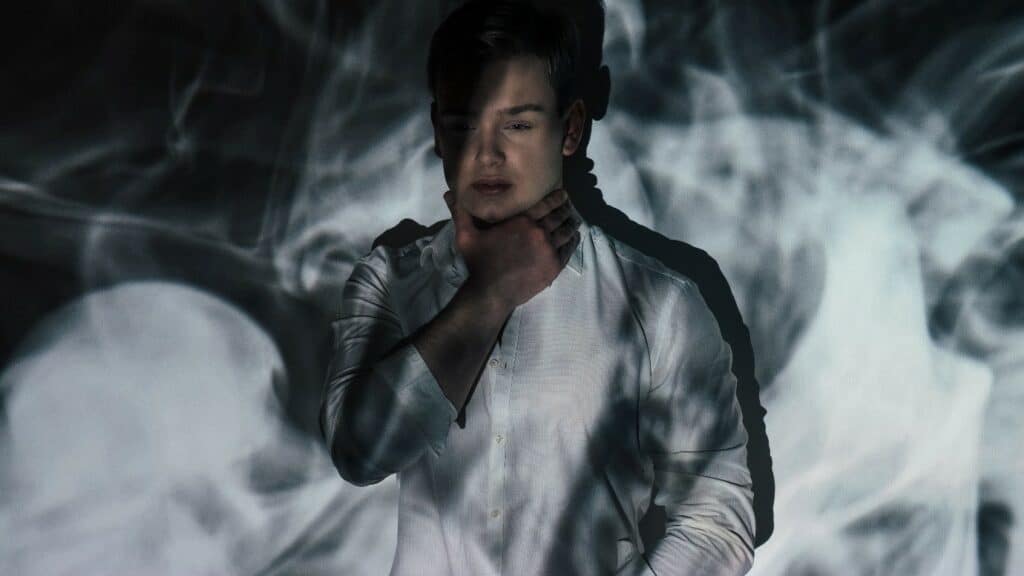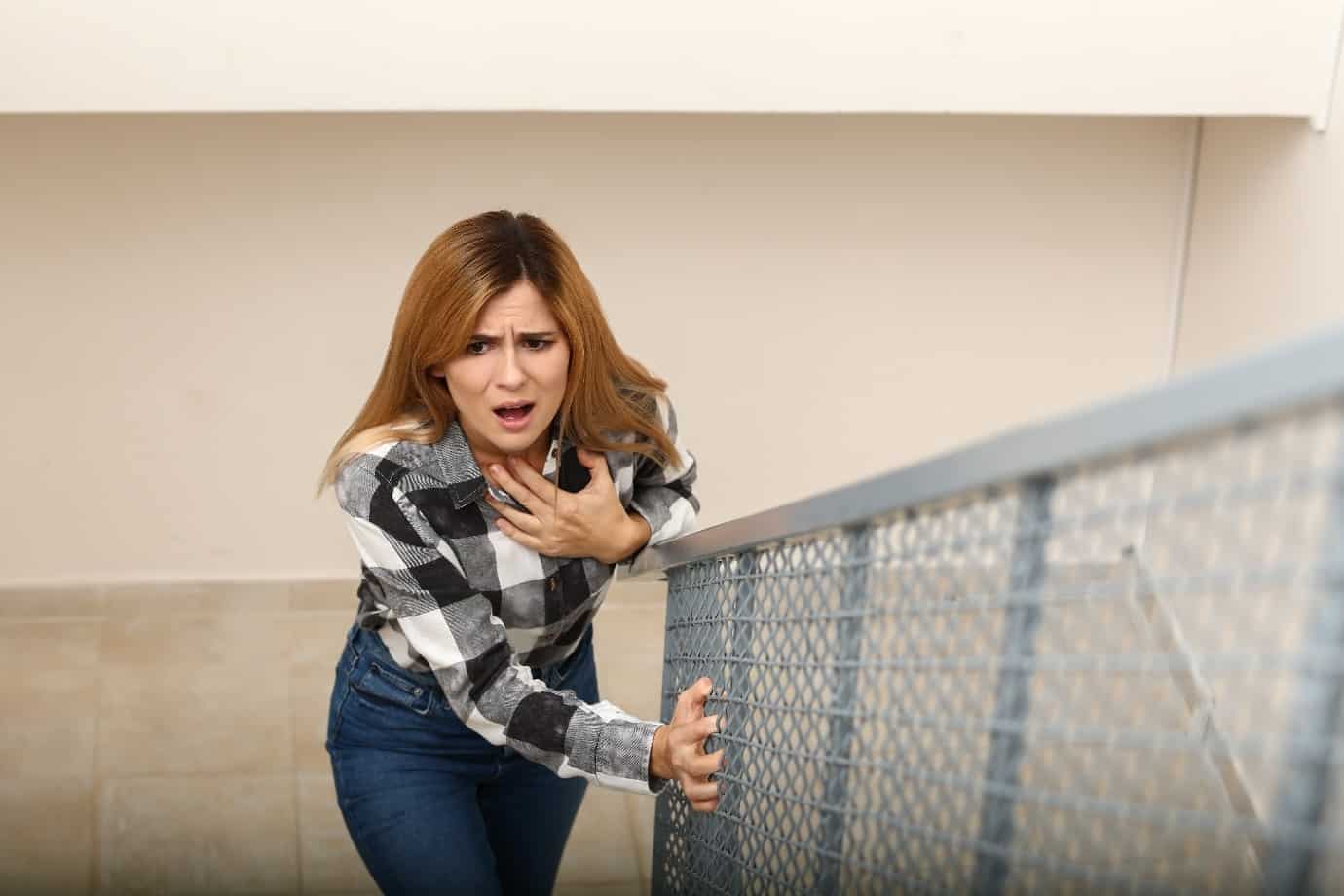Panic attacks are the result of extreme anxiety. Everyone feels anxious and panic at times. It is a normal response to dangerous or stressful situations. But when panic attacks plague you on a regular basis, sometimes for no reason, you could have a panic disorder. Brought on by extreme stress, anxiety or fear, panic attacks are a form of anxiety disorder
A panic attack occurs when your brain detects a threat and often sets off a false alarm. But your brain is not particularly good at telling the difference between real threats compared to you just thinking about danger. So it would rather set off false alarms than miss an incident of real danger. And this is what results in panic attacks. They are in response to a threat that is not really there. This can occur automatically and sets off your flight and fight response.
When you experience the physical symptoms of flight and fight for no apparent reason, it can be really scary. You can make these symptoms worse when you try to make sense out of what is happening. But they can be even worse when your thoughts come up with catastrophic answers(I am losing control, am I having a heart attack). Your brain will react to these thoughts as additional danger and intensify the panic attack.
Difference Between a Panic Attack and Panic Disorder
You can have a panic attack in response to stressful situations where you feel you have no control. Your heart may race and you may have intense chest pain. You can feel dizzy, faint, start sweating and have trouble breathing. It can sometimes feel like you are having a heart attack.
It can be terrifying but they only last for a short time. But if you have multiple panic attacks and live in fear of having them, then you may have a panic disorder.
Panic Attack Symptoms
Usually a panic attack lasts between five and 20 minutes. Some people say they can last for as long as an hour. How often you have a panic attack depends on the severity of your condition. Some people can have them two or three times a week, and others two or three times a month.
Panic attacks are not dangerous even though they are scary. You may fear there is something seriously wrong with you or that you may die, but a panic attack is unlikely to put you in hospital.
When having a panic attack, you can have mental and physical symptoms that come over you suddenly without any discernible reason. They can be frightening and make you feel distressed. Panic attack symptoms include:
- Pain in your chest
- Hot flushes
- Feeling like you are choking
- Heart racing
- Pins and needles or numbness in your limbs
- Chills
- Shakiness in your arms and legs
- Sudden need to run to the toilet
- Feeling like you are going to faint
- Difficulty breathing
- Ringing in your ears
- Fingers tingling
- Sweating
- Intense anxiety
- Mouth goes dry
- Nausea
- Stomach churning
- Dizziness
- Suddenly trembling
- Feeling disconnected to your body
- Thinking you are dying
- A feeling of dread comes over you
- Fear of losing control
- Thinking you are going crazy.
How many symptoms did you say yes to? If it was four or more, there is a good chance you have panic attacks. Do not despair. Panic attacks are common and does not mean there is necessarily anything wrong with you. There is no reason to seek treatment unless you are worrying about how often they occur and it disrupts your daily life. You may start to avoid situations and places for fear they will trigger more panic attacks. When you do this, you can create a vicious cycle of living in fear. This may add to your anxiety and feelings of panic which can cause more attacks.
Keep in mind, panic attack symptoms could be a sign of another underlying medical condition so it can be a good idea to visit your doctor for a check-up.
Do you have a Panic Disorder?
You will need a diagnosis from your doctor to discover if your have a panic disorder or not. Answer the following questions to give you an idea of whether you should visit your doctor.
During a panic attack have you:
- Left somewhere early?
- Needed help to deal with a panic attack (for example, medication or an alcoholic drink)?
- Thought something bad will occur (for example, felt like you were dying, going crazy or losing control)?
- Purposely distracted yourself from thinking about having a panic attack?
- Avoided places or situations you thought would trigger an attack?
- Worried or felt anxious about having another panic attack?
- Spent too much time procrastinating or preparing for situations that may trigger a panic attack
How many questions did you answer yes to? If it was most of them, then you may have a panic disorder. Talk to your doctor about your fears.
Causes of Panic Attacks
Panic attacks can occur when your flight and fight response automatically activates when there is no real threat. But some people are more likely to have a panic attack than others. There is no single reason why this is the case, but the following are some of the causes:
- Catastrophic thinking. Catastrophic thinking is when you think the worst will occur. This is a learned behaviour. Possibly your parents were people who always expected the worst when you were a child. When you think this way, it makes it more likely for panic attacks to occur.
- Stressed out. When you feel stressed out or extremely anxious, it may not take much to trigger a panic attack.
- Biologically susceptible. Some people are more susceptible to stressful situations. They can produce higher levels of stress hormones such as cortisol.
- Overly sensitive to anxious feelings. You may be overly sensitive to your emotions and feelings. This can mean you may mistakenly interpret them as there is danger around you.
- A family member. If you have a family member that has panic attacks, then this could mean you may develop them too.
- Chemical imbalance. You may have a chemical imbalance in your brain’s neurotransmitters.
- Stressful life experience. A traumatic or stressful life experience such as losing a loved one or being in an accident can trigger panic attacks.
- Mental health conditions. A wide range of mental health conditions can predispose you to panic attacks. Conditions such as post-traumatic stress disorder, depression or obsessive compulsive disorder can cause high levels of anxiety that result in panic attacks.
Blissiree Pty Ltd
Panic attacks become difficult to cope with when you feel you cannot control them. They can affect all parts of your life and your relationships if you let them. In fact, your panic attacks can be scary for the people that matter to you most and your colleagues. But sometimes all it takes is to make some lifestyle changes. But this is not always easy without help.
You may often wish your panic attacks would disappear. But if they are out of control and you develop a panic disorder, you may need to seek help to change how they affect you. Until you make some lifestyle changes and learn to manage them, your panic attacks will continue to negatively impact your life.
The Blissiree Pty Ltd is pioneering a new technique. A natural treatment that may help reduce your panic attacks. It only requires for you to relax. Highly trained facilitators help you learn to recognise the triggers and how to manage them. This may help you take back control over your life. You may even notice an improvement after the first session. With some simple changes to your life, a new way of looking at things and with practice, you may learn to put panic attacks behind you.
If your panic attacks have turned into a panic disorder, it is time to turn it around. Time to do something positive. Seek help. Take back control. You do not have to go through it alone. The sooner you get help, the sooner you can start taking good care of your mental health. And get back to enjoying life.
Reach Out
If a panic disorder interferes with everyday life, reach out to our professionals. When you are not coping, contact us. We can talk to you about how to get your life back on track. But if you reach a crisis point, call us immediately. We are here to support you.
We can work with you over the phone, via Skype or in our Spa. Book in today for my special introductory offer of just $49 (private health rebates apply) so you may turn your life around. We aim to help you cope with any mental health challenges and the anxiety that affects your life. Our facilitators may alleviate your panic attacks so you start enjoying life again.
Let me Help Manage your Panic Disorder Naturally
My Emotional Empowerment Program has helped many people for more than a decade. My aim is to help you manage and cope with panic attacks naturally so you may be able to control them. This may give you a new hope for the future. A future filled with happiness, peace and contentment in weeks not years so you can start living life to the fullest.
Book a free 25-minute telehealth consultation with Blissiree Pty founder, Terri Bowman. Or discover a seamless way that may help you manage your emotional and mental health by becoming a member. It will give you access to more than 75 audio programs that may help you to live an inspired life.
What are you waiting for? Try us now. You have nothing to lose.




